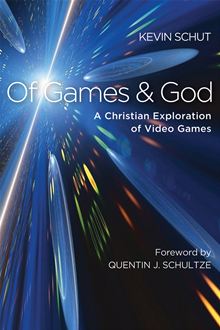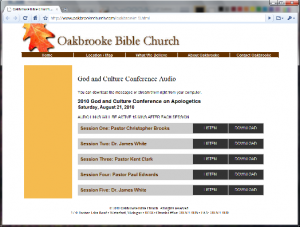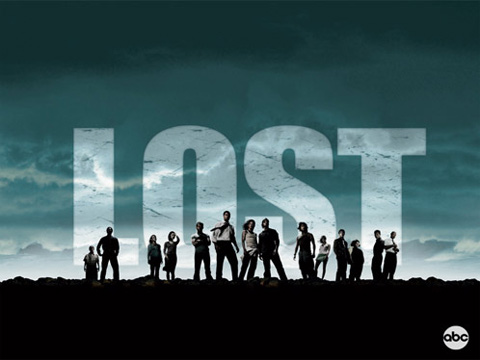
Noah – Here is a PDF version of my review for printing, sharing, etc.
Introduction
This Friday, March 28th, I decided to go see the Noah movie in theaters with a good friend from my church. I had previously read reviews of the script and the analysis that many Christians leaders had given from their perspective. And as I usually do, I respect what they have to say and consider them genuine and trustworthy in their opinions, even when I disagree with their tone or some of their interpretations. But given that many people always prefer that those commenting on a film should watch it themselves, I was not going to leave myself unable to provide respectable input on a film of this magnitude. I wanted to be able to offer people my own review and therefore decided to attend a showing of the film myself. What follows are some of the important things I took away from the film after seeing it this weekend.
First, before spoilers, I would like to say that I will leave a highlighted note below of where one should stop their reading this review – if they are intending to see the film themselves and would prefer a ‘tabula rasa’ reception of watching the film. That being said, I would like to discuss whether or not Christians should pay for a movie ticket to see this film before it comes out on Red Box for $1.50 on Blu-Ray.
Therefore, after seeing the film, I would recommend that any Christian who cares to offer a respected critique to fellow co-workers and friends should certainly attend the movie soon while people are talking about. But, if you don’t care to involve yourself in those discussions right now, no worries, just wait till you can rent it or don’t worry about seeing it at all. Second, if you feel that any retelling of an Old Testament story – that leaves something out, or even slightly implies something different – is actually evil, demonic, or heresy… you should obviously just stick with the other reviewers for your information and not harm your conscience by seeing Noah for yourself. I mean that with all sincerity, as I understand that some of my fellow brothers and sisters in Christ are not edified by watching a ‘Bible’ movie (made by Hollywood) because of the lack of consistency these movies tend to have with the text of Scripture itself. And to all you other Christians, don’t be so quick to encourage others to harm their conscience about such things!
But, other than those warnings, I would not see it a completely terrible thing to watch the movie yourself at some point in time and consider how an atheist writer and director retold the Noah story from his own perspective of trying to incorporate the Scripture’s explicit material within his own thoughts about the world, man, justice and mercy.
All of us who have read the headlines know that the writer/director, Darren Aronofsky, is an avowed atheist. He has a worldview and agenda that is antithetical to the Bible, the Gospel, and all the goodness of God that Christians uphold as the treasure of their very life and existence. Yet, it always pleases me to say that every atheist is made in the Image of God and has the Law of God written on his heart even though he suppress the truth in unrighteousness. Therefore, no matter how much Aronofsky may have wanted to make an “unbiblical Biblical movie” that was more secular than sacred… he cannot escape the common grace of God or what following the explicit data of Scripture does to his own movie making. Given those facts about Aronofsky, it was guaranteed by God’s rule that this atheist would teach some important truths about mankind and the creation by attempting to retell the story of Noah in this way.
SPOILER ALERT – A this point in the review, all parts of the movie that I can recall are now game for the rest of my analysis. If you plan to see the film and don’t want to know some of these items yet, save this or e-mail it to yourself and read what follows after you see the film.
The Good
Noah depicts the flood events of the Biblical epic as global, just like the Scripture teaches. No matter what some scholars would like to argue about the text and the science of the flood story, the whole earth is destroyed and the explicit language of the Scripture teaches that Noah is the Second Adam, leading humanity into a type and likeness of the new creation that the “Last Adam”, Jesus, is bringing about with his own life, death and resurrection (Romans 5 and 1 Corinthians 15). Any retelling of the flood that takes into account Noah as a son of Adam, in the lineage of Seth (Genesis 5), will always come away teaching that Noah restarted the human race as a new ‘Adam’ figure.
Noah depicts the wickedness of humanity with great faithfulness. There is no doubt that anyone who sees this film will come away thinking that mankind has great evil, or potential of evil, within his own heart. No matter where I might have disagreed with how the story of the flood was retold in Noah, I cannot help but acknowledge that everyone in the film was shown to be a sinner, even Noah, himself. This reminds us and teaches us that Adam’s sin corrupted all of us and that we cannot escape that corruption without the help of God in Jesus Christ through the work of the Holy Spirit.
Noah shows us, on the big screen, some of the massive weight of power and judgment that God showed all of humanity on the day the flood began. God, the Creator, repented of making mankind and decided to wipe them all out, excepting Noah and his family (Read Genesis 6 and following). Seeing the global flood in excellent CGI and artistry was powerful and moving. Men, women, children, and babies were all slaughtered by the One, Holy, Triune God as the flood waters covered the land and washed away the stain that was sinful humanity. Both the mercy (saving Noah) and the justice of God (destroying evil mankind) were displayed to everyone. And since I don’t believe God needs to be defended for His judgment and decisions, it is not as concerning to me that the movie didn’t seek to explicitly ‘preach’ an orthodox view of God’s justice in wiping out humanity. Do I wish it did? Sure, but God still doesn’t need our defense to justify His actions. He is our judge and we are not His.
The movie actually did grapple with the reality that God destroyed all kinds of people, young and old, who may not have been as evil as some other people in their day. Some, like Russell Crowe himself (who starred as Noah in the film), may come away thinking Noah wasn’t a good man or that God wasn’t very merciful… but that is the very point of the flood story! Noah was still a sinner, even though he was a ‘righteous man’ and God executed justice on humanity for all their evils. No Christian should ever try to lessen the weight of God’s judgment when proclaiming the truth of the flood events to non Christians. The flood makes the Gospel of Jesus even better news for people considering why Christians believe that God wiped mankind out in a global flood that renewed the creation and restarted the human race with the lineage of Seth, from which the Christ, Jesus of Nazareth, comes. (Luke 3:23-38) As Christians, we should never be hesitant to help others understand why we call the work of Jesus “good news” or “Gospel.”
The Bad
At this point, I will turn to the negative and unhelpful aspects of Noah.
Noah depicted several things in ways that are not very consistent with a Christian interpretation of Genesis. And while C.S. Lewis might have more heartily commended the film – because he believed Genesis chapters 1 through 11 (until you get to Abraham) were ‘true myth’ – I am reviewing this from the perspective that Moses wrote Genesis in the genres of historical narrative and that any attempt to say that Genesis involves itself with fictional accounts is simply unfounded and inconsistent with the text’s own linguistic structure. You can view my apologetics presentation here online: Genesis as History
Noah, in its creative license, ended up leaving out some key aspects of the story in Genesis. First (in the Bible), the angelic ‘sons of God’ only came down because they found the ‘daughters of man to be attractive’ (Genesis 6). Noah claims that they came down to help mankind because they felt sorry for them because of how harsh the world was going to be after the Creator kicked Adam and Eve out of the garden. These fallen angels were also not represented correctly, though I certainly enjoyed the ‘rock monster’ effect and how it was incorporated into the story of the film. For those interested in my view, the most helpful understanding of the ‘sons of God’ passage is this: The fallen angels, attracted to women and mankind, left their places of authority and possessed men who had authority, taking for themselves many wives and raising for themselves many children that became ‘giants’ in the land – either by their greatness of power or their actual physical height and strength, or both. From them come all the ancients myths of the ‘men of renowned’ – such as Hercules, Achilles, Dionysius, Perseus, and any other culture that recounts stories of mighty men who were the product of ‘gods’ having sex with beautiful women and producing children. Unfortunately, none of these explicit citations in Genesis are addressed in the pre-flood movie world of Noah.
Noah also left out the fact that God told Noah to bring on the ark more than simply ‘two of each kind’ of animal. God also said, “Take with you seven pairs of all clean animals” (Genesis 7). This was not mentioned, which left a large gap in the explicit narrative of Genesis that addresses clean and unclean animals throughout. Even the presence of an ‘unclean’ snake/dragon in the garden is significant for a proper interpretation of the fall of mankind in Genesis chapter 3. This signifies what Adam was not doing in protecting the garden from the unclean serpent. And while I feel this was a ‘minor’ negative, it is worth noting that Noah clearly reflects the interpretations of an atheist writer who doesn’t care about what Scripture cares about. And I will also admit that you don’t usually have time to get into the clean/unclean pattern in a movie with 2 hours of runtime!
Noah most notably didn’t make clear the explanations that Genesis gives about God revealing himself to Noah and his sons. Throughout the movie, Noah was only given limited information about what God intended to do with him and his family after the flood. It was also not clear to Noah, in the film, as to whether God wanted to save him when the prophecy of the flood was first revealed to Noah in a vision. This is not the picture that Genesis paints when God clearly states (Genesis 6:9) that Noah was a “righteous man”, “blameless in his generation” and that he “walked with God”, just like Enoch did (in Genesis 5). Further, in Genesis chapter 7, Noah is told that he and his family are being saved because God had seen that Noah was a ‘righteous man.’ On the contrary, in the film, Noah enters the ark depressed and despairing of life for his family. He is depicted as believing he and his sons won’t have any more children and that God only really means to save the innocent animals, since all of man (including his kids) are unredeemable. Now, this makes for a very powerful question of “is man worth saving?” Still, it does not reflect well on the Genesis account or on God’s clarity in speaking to his chosen people with trustworthy revelation. I can only hope that those who view the film will refresh their memories of the actually account in Genesis rather than assume that God wasn’t clear about humanity’s future with Noah and his family.
The Worthy
Now, I would like to address some interesting points in the film and why I found some of them worthy of contemplation. These may or may not be significant to the overall story of Noah that Aronofsky is telling, but I found them to be important to dwell on as I watched the film myself.
First, on a fun point of interpretation, in Noah we see an old Methuselah who recounts the prophecies of his father, Enoch, the man who walked with God and was no more, because God took him to be with him at an early age (see Genesis 5). When Noah is telling Methuselah of the coming judgment on man and Methuselah says that Enoch told him the world would be ‘destroyed by fire.’ Noah proceeds to tell him, ‘No, not by fire. But by water.’ Puzzled, Methuselah moves on to help Noah figure things out, but I found this worthy of notice because it is actually a very accurate point of Biblical prophecy. You see, Jude and 2 Peter (two of the Catholic Epistles in the New Testament) explain the end of this current age in which we live. Peter tells us in 2 Peter 3 that the world is being reserved for fire, since God promised never to deluge the world with water again. Peter says that God will eventually bring a final judgment on all people throughout history at the resurrection, with the consummation of the New Heavens and New Earth. Jude, telling of similar judgments, actually refers to an apocryphal account of Enoch, the preacher of righteousness, who foretells of the second coming of Jesus to judge the world. So, Methuselah was right to mention judgment by fire as prophesied by Enoch, his father. He simply did not understand yet that the judgment by fire was not going to happen until the end of the ages, or that the flood was a type of things to come with Jesus. This is an extremely important type and anti-type that flows throughout the Scripture. Impressively enough, an atheist writer picked up on this in his research and creatively incorporated it into the film of Noah.
Noah challenges us to incorporate an interpretive consideration regarding how man’s wickedness actually affected the creation. While Aronofsky is very interested in ecological preservation and what some call ‘tree hugging’ and ‘animal worship’, the Genesis account very clearly states that man was to be the ruling caretaker over all the creation – both plants and animals. Thankfully, I felt while watching the movie that Aronofsky didn’t make as big a deal out of this as I thought he would. This leaves many Christians and viewers the opportunity to consider how they are in fact created to care for others and not abuse the world we live in. Further, Adam was given the task of expanding the garden throughout the world in Genesis chapter 1 and 2 by filling the earth with his children, but when Adam sinned and condemned all his children to working the ground in toil and sweat, man’s abuse of the creation was solidified and eventually man was rightly wiped out by the flood event. Why? For all of man’s sins – against God, other humans and the rest of creation. Aronofsky’s green interpretation might be a turn-off for some Christians, but I found it a helpful reminder to remember God’s calling for man when he created them ‘in His image.’ This still applies to all people today and Christians need to remember this, even when they have to grapple with creation-worshipping atheists.
Noah may actually accomplish one important thing – getting people to read God’s word again and consider what it actually says. Now this may be a novel expectation, but I would encourage all of my readers to read the Genesis account before they go see the movie and after they go see the movie. You should be able to critically analyze the film to find out what was ‘gotten right’ and what was ‘gotten wrong’ by Noah. Studying God’s word and seeking its judgment of us (not our judgment of it) is one of the most important acts of obedience in the Christian life. If we can be moved to learn God’s word better, then our viewing and discussions of Noah will have benefited our lives for the better and not for evil.
One important point of reading Genesis and the rest of the Bible’s commentary on Noah is to notice that some Christians are actually getting frustrated by the portrayal of Noah NOT as a preacher of repentance. Inferred in this position is the interpretation of 1 Peter 3: 18ff that says Noah was the one who preached to the ‘spirits now in prison’ by the Spirit of Christ in him. They claim he called people to repentance before the flood came. But this is actually not what I believe Peter is telling us when he talked about Jesus going “by the Spirit” to proclaim/preach to the spirits of the imprisoned. And while I’m not going to have room here to explain a full account of exegesis, the interpretive key for 1 Peter 3 is the phrase that Jesus was “made alive in the Spirit, in which he went.” I believe this is a reference to Jesus’ resurrection, and that what Jesus does in ‘preaching’ or ‘proclaiming’ to the ‘spirits now in prison’ is actually a declaration that occurred in Christ’s ascension to heaven to sit on the throne of God. This would mean that the ‘spirits’ – be they man or angelic – were being told that the God-man, Jesus, was now ruling over the creation and had done what all men before him could never do – fulfill the covenant that Adam broke, that Noah and his sons couldn’t maintain, that Abraham’s descendants rebelled against… Jesus finally fulfilled the eternal covenant by his perfect life, his death, and his resurrection on behalf of all of us who believe and obey His Gospel.
Christians shouldn’t be upset because Noah isn’t shown walking around calling for people to repent of their sins and be saved and enter the ark. By all accounts in the Bible, Noah never did such a thing, nor was he asked to do it. God judged mankind in an un-revocable way AND THEN he declared to Noah that only he and his family would be saved on the ark with all the animals (follow the flow of Genesis 6 to see it). Interestingly, this was a fundamental aspect of Noah, regardless of interpretive problems by the atheist writer and director. Noah was shown to have no hope for saving the rest of humanity, even when they wanted to run into the ark while the rain was falling. Noah was even depicted as slaughtering any who attempted to enter the door. Regardless of the likelihood that Noah killed people, it is more consistent with Genesis than those Christians who misinterpret the 1 Peter 3 recounting of Noah and the relationship these events have to Jesus, baptism, and the resurrection. Even more, as my friend pointed out, Noah truly gives us a good consideration as to what psychological effects the flood might have had on Noah. Could Aronofsky have hit the metaphorical head of the nail by taking the entire thrust of Noah’s personal experience shown in the film to explain why he got drunk in his new garden? The entire human race was destroyed before his very eyes and only he and his family were left. If anything, this movie compels us to consider exactly how Noah could have felt, even in the face of the grace of God that saved him.
Conclusion
Noah is a secular film more than it is faithful to Christian interpretation of the flood story. But even with its errors and omissions, I was still able to benefit from viewing the movie on the big screen. I highly recommend that this film be seen with others and not ‘by your lonesome’. You should plan on going out after the movie and discussing your likes and dislikes, where it matched the Genesis and Biblical accounts, along with where the writer used substantial creative license. If you can’t convince yourself to pay the cash to Hollywood, don’t worry, just wait until it comes out for cheap on Red Box or Netflix and watch it then.
I certainly don’t believe we Christians should rely on movies like this to replace our own proclamation of the Gospel to the world. But since the movie has been made and many non-Christians are going to see it, I would highly suggest that you as a Christian be able to respectfully respond to others who have seen it by seeing it for yourself. This will maximize your ability to teach others what the Scriptures actually tell us about Noah and his relationship to Jesus and the Gospel. It will give you more of a hearing with others who don’t agree with you or your worldview.
Lastly, pray for other Christians and any of the opportunities this may give them to have fruitful conversations with other people, both Christians and non-Christians. We live at a turning point in American and Western history, where Christians are marginalized for their faith in Jesus and their belief that Scripture is the revelation of God and our sole guide for life and godliness. The more people can respect our worldview, the less likely they will be able to turn against us when the powers and authorities in high places seek to punish Christians for their lifestyle and worldview.






